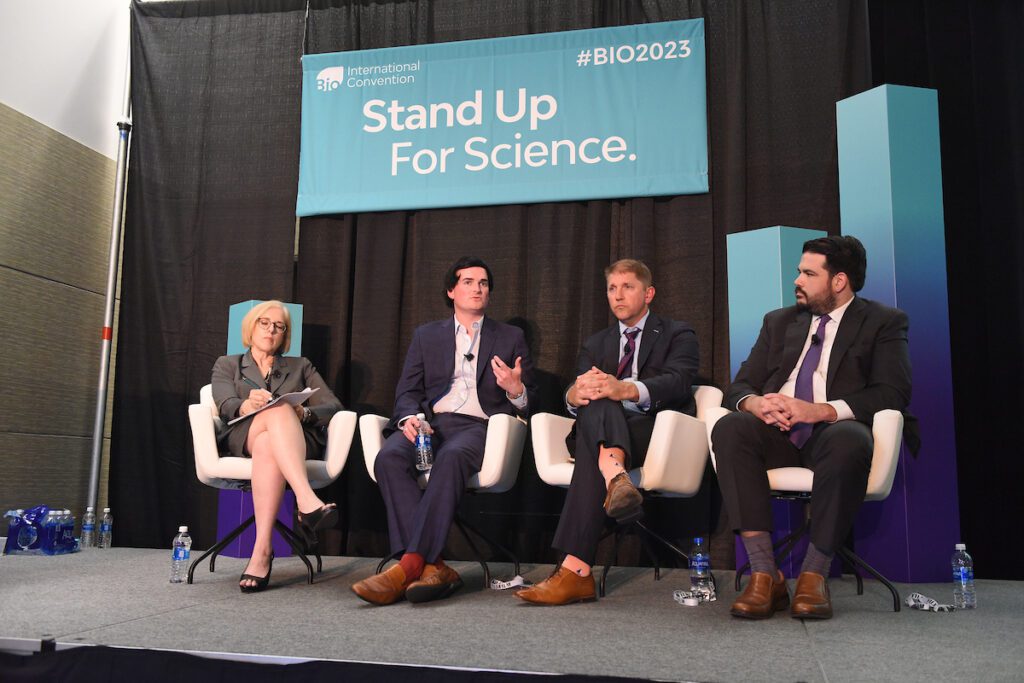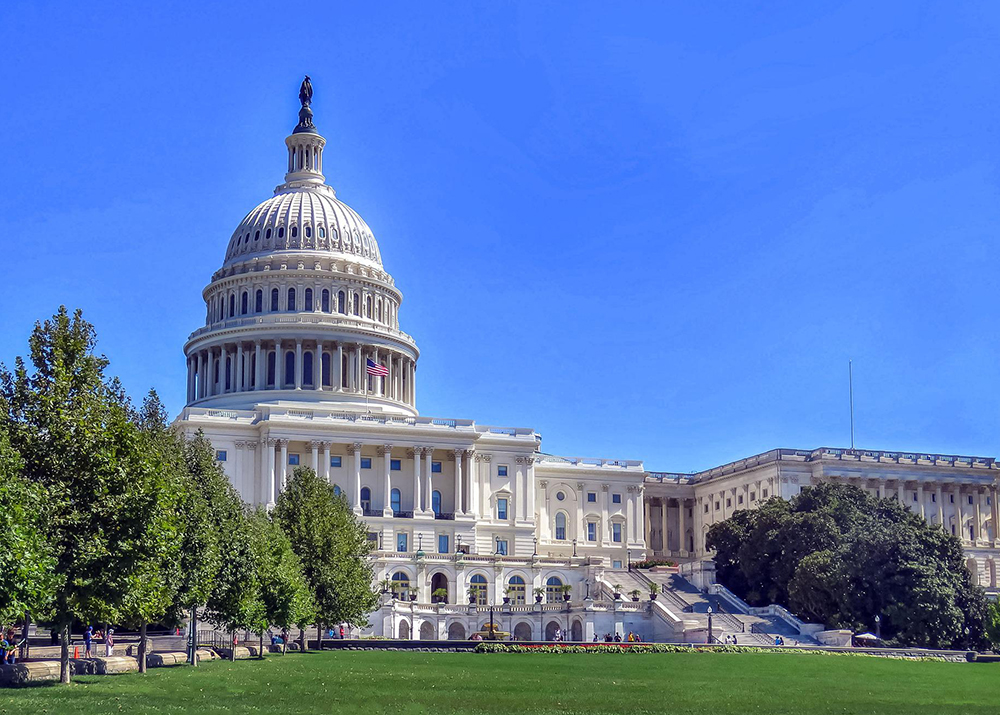Intellectual property (IP) protections need reform but the current Congress may not have the consensus to achieve these changes, a panel of Capitol Hill insiders said on June 6 at the BIO International Convention.
“IP is one of those areas where, while people disagree, their disagreements don’t tend to break down on largely partisan lines,” said Brad Watts, who is currently working on IP policy for the Chamber of Commerce Global Innovation and Policy Center. Watts was previously chief counsel for Sen. Thom Tillis (R-NC) on the Senate Judiciary IP Subcommittee.
That’s begun to change, with the Inflation Reduction Act (IRA), which weakened IP protections by reducing market protections for new drugs, according to Watts. He said opposition to the IRA “is one area where the Republican caucus tends to be by and large pretty unified.”
A partisan divide can also be seen regarding the issue of WTO IP waivers for COVID technology, noted Nancy Travis, VP of International Affairs at the Biotechnology Innovation Organization (BIO), who moderated the panel called “Intellectual Property Law in the 118th Congress.”
Watts agreed, adding there used to be a general consensus among everyone in Congress that more IP is better. Now, however, differences over the WTO’s TRIPS waiver for vaccines, and the proposal to extend the waiver to include COVID therapeutics and diagnostics, show “that consensus hasn’t completely faltered, but it’s definitely fractured.”
IP is complicated – which is why we need more education and to tell the story about why #IP matters to #biotech innovation, says @NancySTravis at #BIO2023 pic.twitter.com/H9ECIif0MU
— I Am Biotech (@IAmBiotech) June 8, 2023
PTAB reform
One area where bipartisan legislation might come during this Congress is reform of the Patent Trial and Appeal Board (PTAB), according to Watts.
In last year’s Congress, Sen. Tillis joined Patrick Leahy (D-VT) in proposing reforms designed to improve the capacity of PTAB staff so that patent examiners could keep up with the increasing complexity of new technologies typical of biotech.
Watts said Sen. Tillis is not likely to walk away from the issue and will probably propose reform again this Congress.
Panelist Barrett Tenbarge, General Counsel for the Senate Health, Education, Labor and Pensions (HELP) Committee, who works for Ranking Member Dr. Bill Cassidy, noted the need for PTAB reform. He said capacity of PTAB examiners is sufficient for some technologies but is not adequate to the demands of biotech, which has grown increasingly complex.
Eligibility
The increasing complexity of biotech also necessitates reform in the area of patent eligibility, according to Tenbarge.
“You know, cell and gene therapies are the future—both the present and the future—in terms of the amazing work that’s happening,” he said. The manipulation of cells or gene editing involved in these new therapies must also be eligible for patent protection, but the current system is not sufficiently sophisticated to handle these advances, Tenbarge said.
Watts said he worked for four years with Sen. Tills, as well as BIO’s IP expert Hans Sauer, to develop legislation to reform eligibility, but the legislation had not yet been passed.
“I do think we’re going to see that continuing to be a high priority, especially for Sen. Tillis,” Watts said. “All of you know very well the kind of negative impacts current jurisprudence is having on our innovation ecosystem. And I think that’s probably why Tillis is so laser focused on this.”
Panelist Ted Lehman, who is currently a Principal at Todd Strategy Group but previously spent five years as chief of staff for Tillis, said expanding patent eligibility to new life sciences technologies was essential to enabling drug development.
“When your executive leadership team is trying to figure out whether or not they’re going to invest … you at least need to know or have predictability about whether something is in fact eligible for a patent,” he said.
Start lobbying
Now that Sen. Bernie Sanders (I-VT) is leading the Senate HELP Committee, biotech firms can expect further assaults on IP rights and other protections that enable the R&D investment the industry needs, according to Tenbarge.
He advised members of the biotech industry to meet with lawmakers to explain the dollars-and-cents implications of IP.
“Having folks for site visits, talking to members of Congress about your business and how your business makes decisions, is incredibly important so that they can understand those factors and how the legal framework impacts them,” he said.




